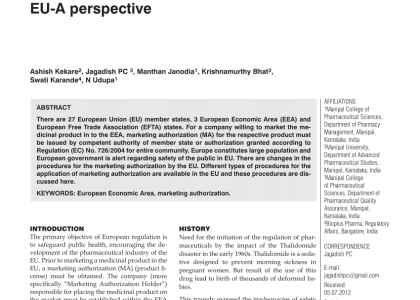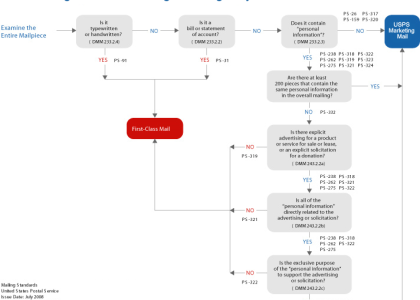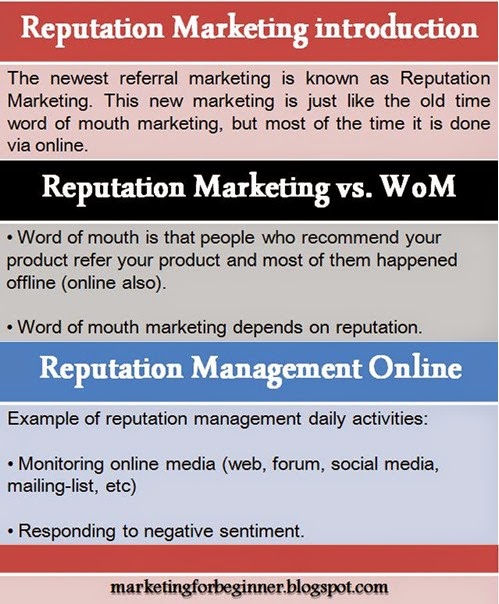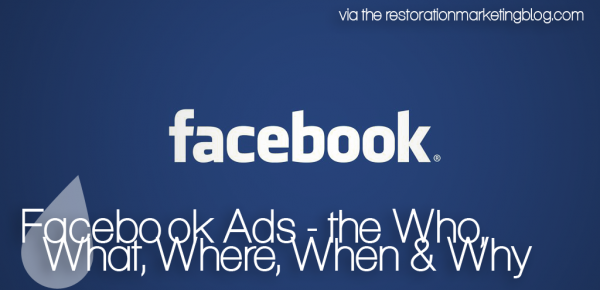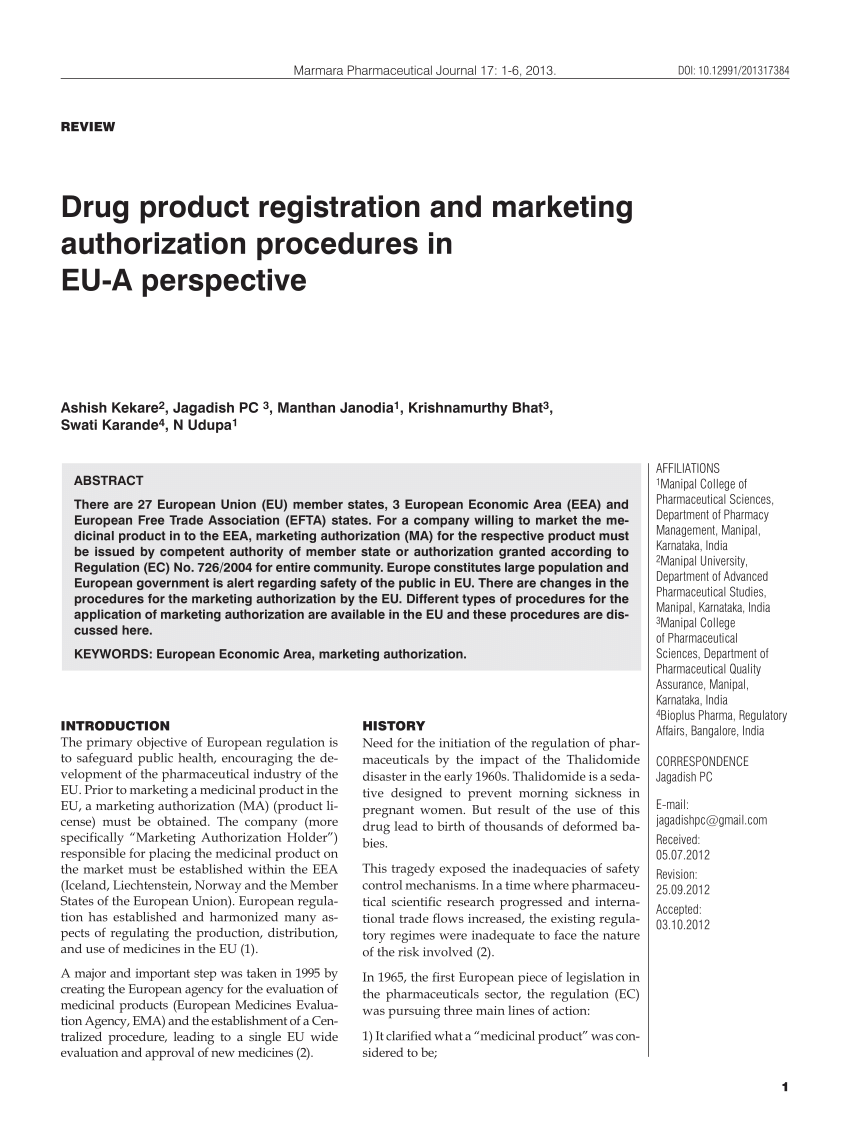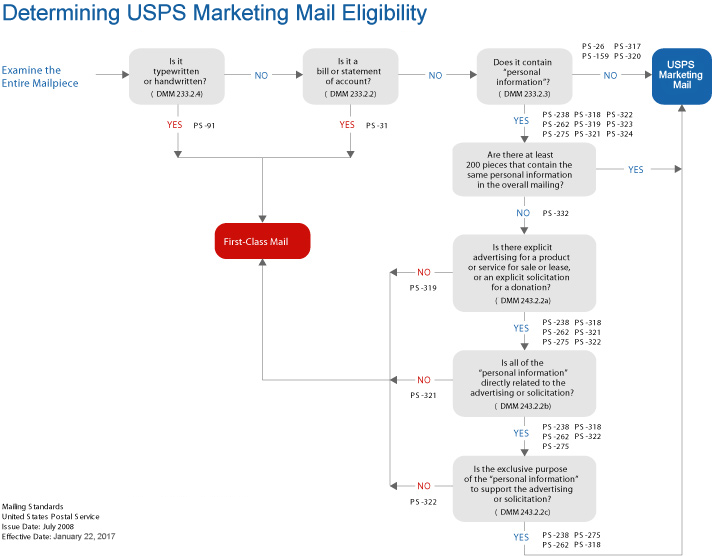Grasping the influential impact of marketing has become increasingly crucial for any industry, especially in this digital age where change is the only constant. By bridging the gap between products and customers, marketing’s significance cannot be understated as a powerful tool for corporate expansion. Yet, many organisations still do not fully exploit the advantages it offers. This article will delve into understanding this paramount aspect of business growth.
Marketing, frequently misconstrued as selling, is in fact far more comprehensive – nurturing relationships with consumers, producing persuasive affirmations, increasing visibility, and striving to deliver ultimate client satisfaction. Its ultimate objective extends from drawing in customers to retaining them and making certain that they associate the brand with quality and reliability.
Imagine launching an exceptional product that your team worked tirelessly on, and it fails to gain traction simply because potential buyers were not aware of its existence. This is where effective marketing steps in, ensuring your product is not only well-received but garners the recognition it deserves. However, good marketing requires a thorough understanding of your product, target audience, and market landscape. This calls for the need to recognize the significance of marketing in driving business growth, a topic we will discuss in this article.
The Significance of Marketing in the Ecosystem of a Business
Marketing fulfils a critical role in the life-cycle of a business, contributing directly to its growth and success. This process involves a strategic approach to create, communicate and deliver value to consumers, and consequently drive profitable customer interaction.
For a start, marketing aids in building consumer awareness. Businesses use various marketing strategies, including social media campaigns, email blasts, or even traditional advertisements to spark interest and engage potential customers. This visibility is essential for attracting new customers and maintaining an existing ones. Without a strong marketing strategy, even the best products or services may go unnoticed in a competitive market landscape.
Beyond building awareness, another essential role that marketing plays is in understanding customer needs. Through market research, businesses can gather valuable insights about their target audience – their interests, needs, preferences and behaviours. These insights enable enterprises to design their products or services to align better with their consumers’ expectations, resulting in higher satisfaction levels.
- Fosters consumer engagement: Marketing serves as a communication platform, enabling a business to interact directly with its consumers or clients. This engagement helps nurture relationships with customers, fostering loyalty and advocacy.
- Boosts sales and profits: By effectively attracting and retaining consumers, marketing efforts contribute to increased sales. A higher sales volume translates to larger profit margins, which hastens business growth.
In conclusion, marketing underscores the growth strategy in any enterprise, exploring the needs and wants of consumers, and ensuring these determine the direction of business activities. Through strategic marketing, businesses can continually adapt to changing market conditions and consumer behaviour, ensuring longevity and sustainability in their operations.
Exploring the True Essence of Marketing
Marketing goes far beyond just promoting or selling a product or service. At its heart, it encompasses all activities centered around satisfying customer needs. The concept of marketing is a blend of research, product development, promotion, customer service, distribution, and strategies for pricing – all focused on driving growth for businesses.
The Core of Marketing
The primary goal of marketing consists of recognizing and anticipating consumer desires in a way that benefits all stakeholders – the business owner, the customer, and society. It involves creating valuable exchanges that satisfy the perceived wants and needs of a consumer.
Creating Value
Delivering superior value to customers is the key to creating customer satisfaction and loyalty, a critical component of business success. According to Prof. Philip Kotler, the ‘Father of Modern Marketing’, the central focus of marketing is the creation and distribution of value. This critical function fosters customer preference, builds relationships and loyalty, and ultimately, drives growth and profitability.
- Understanding the Customer: A significant part of marketing is in-depth and insightful understanding of the market, the consumer behavior, their preferences, and needs.
- Communicating Value: The next step involves showcasing how your product or service can satisfy those identified needs. This step entails advertising, sales promotion, public relations and direct marketing.
- Delivering Value: Building and enhancing the businesses’ offerings to meet and exceed customers’ expectations, thus ensuring customer satisfaction and loyalty.
- Exchanging Value: This involves value exchange – the transaction in which the customer gains products or services in response to their payment.
Overall, marketing efforts are instrumental in driving business growth and success in the long term. Understanding its true essence and its potential can lead to substantial improvement in businesses’ performance and sustainability.
| The Core Elements of Marketing |
|---|
| Understanding the Customer |
| Communicating Value |
| Delivering Value |
| Exchanging Value |
Essential Promotional Tactics for Enhancing Commercial Expansion
Promotion is crucial in the expansion of any business. It is the tool that attracts potential customers, motivates them to make a purchase, and fosters brand loyalty. For a company to achieve considerable growth and expansion, certain marketing tactics are critical.
Digital Marketing
With the advancement in technology, businesses ought to adapt to digital marketing techniques. This involves the use of digital channels such as Search Engine Optimization (SEO), content marketing, social media marketing, and email marketing. These techniques are effective platforms for business promotion considering the increase in digital consumers.
- Search Engine Optimization (SEO): Improved search engine ranking will lead to increased visibility of your business online, attracting more potential customers.
- Content marketing: This involves creating valuable content that engages your customers and encourages them to share it with their networks, increasing brand awareness.
- Social media marketing: This approach utilizes social media platforms to reach a wider audience and engage with potential customers. It also helps to establish a good brand reputation.
- Email marketing: This is a cost-effective tool for communicating with your customers and sending them personalized offers.
Traditional Marketing
While digital marketing is an essential strategy for business growth, combining it with traditional marketing techniques will yield better results. These strategies include television and radio adverts, direct mails, billboards, and print media advertisements.
| Marketing Technique | Advantages |
|---|---|
| Television and radio adverts | Wide audience reach, persuasion adaption. |
| Direct mails | Personalization, cost-effective. |
| Billboards | High visibility, geographic targeting. |
| Print media advertisements | Long-lasting, high readership. |
In conclusion, leveraging both digital and traditional marketing strategies significantly aids in business enlargement. Enterprises should employ innovative and comprehensive marketing strategies to reach more potential customers and drive sales growth.
The Synergy between Marketing Strategies and Maintaining Customer Loyalty
One of the paramount aspects, often overlooked in the journey of escalating business development, is the harmonious relationship between marketing endeavors and sustaining consumer commitment. This crucial interconnection plays a significant role in promoting business endurance, majorly influencing a company’s growth pathway.
Marketing efforts concurrently act in dual roles: the magnet attracting potential customers, and the glue ensuring existing clients stay loyal to the product or service. The first is perhaps the most visible, with companies heavily investing in campaigns to draw in new consumers. The second though, the art of retaining these hard-won customers, is equally, if not more, integral.
Factors That Impact the Marketing and Client Retention Link
- Personalized Approach: Modern marketing largely revolves around personalization. The more a customer feels valued and understood, the more likely it is to stick around. Tailored marketing strategies aimed at providing relevant solutions facilitate a stronger connection and encourage customer loyalty.
- Quality Assurance: Marketing is not just about creating an appealing image but also guaranteeing the honesty of its representation. Any inconsistencies can harm customer faith, causing them to venture elsewhere. Therefore, maintaining quality consistently is vital for customer retention.
- Post-Sales Service: The role of marketing extends beyond the point of sale. The provision of quality post-sales service shapes a customer’s overall experience and can significantly help in building customer allegiance. Regular follow-ups, prompt response to queries, and effective solutions can leave a lasting positive impression.
To sum up, the relationship between marketing efforts and customer retention is dynamic, multi-faceted and fundamentally crucial. To ignore it might be a costly mistake for businesses hoping to thrive and expand in today’s competitive marketplace. Be it through personalized strategies, consistent quality, or efficient post-sales service, businesses need to use marketing as a tool to nurture this relationship and build lasting customer loyalty for sustained growth.
Grasping the Significance of Market Study and its Influence on Business
Comprehending the concept of market investigation is pivotal to any organization’s improvement. It plays an essential role in leading a business to higher tiers and offering insightful data that fosters better decision-making. Effectively deploying market examination strategies empowers businesses to uncover valuable information about consumer wants, market trends, competition, and other factors.
Firms draw substantial insights from market study, directly impacting their strategic development. Essentially, it enables them to:
- Determine business opportunities and potential threats within their market segment.
- Identify consumer needs and preferences to tailor their offerings suitably.
- Gain an edge over competitors by equipping themselves with knowledge about their strategies.
- Assist in minimizing investment risks.
Fostering an understanding of market investigation outcomes can be a game-changer for businesses. Here’s an explanation of its impact:
Influence on Decision Making
Well-conducted market research provides a solid base for making crucial business decisions. From product development to pricing strategies, and marketing campaigns, a thorough understanding of market dynamics informed by research can significantly enhance decisions, reducing risks and fostering growth.
Understanding Consumer Behavior
Market examination lets businesses dive deeper into consumer behavior, thus helping them align their products or services appropriately. When businesses have a clear understanding of their target demographic preferences, they can provide tailored offerings, ensuring fetching higher consumer satisfaction and retaining customers in the long run.
Assistance in Marketing Strategies
Identifying the most effective marketing channels is another advantage of market investigation. It helps in determining whether to invest in digital marketing or traditional avenues, depending on the demographic being targeted.
In conclusion, market examination and research is a beacon that guides businesses through their growth journey. It fosters enhanced decision-making, builds deeper consumer understanding, and shapes effective marketing strategies. Hence, recognizing its significance can bring about substantial expansion to corporations.
Capitalizing on Effective Promotional Techniques for a Prosperous Business
For a business to truly thrive and grow in a fiercely competitive market, efficient promotional strategies are crucial. They not only aid in staying ahead of the competition but also play a significant role in scaling up and sustaining the business over time. Strategic marketing is, therefore, a key element of this competitive advantage.
In any given industry, there are likely many competitors offering similar products or services. Successfully differentiating your brand from competitors is one of the most potent outcomes of effectual marketing.
A well-devised marketing plan can do more than merely promote a product or service. It can create a lasting perception in the minds of consumers by highlighting the unique value proposition of the business. Through this, customers are able to distinguish your brand from others, augmenting brand loyalty and fostering sustained growth.
Beyond Creating Awareness
While creating awareness and visibility for a business is certainly an important aspect of marketing, efficient promotional strategies delve deeper. They demonstrate a thorough understanding of the consumer’s needs, preferences, and pain points, therefore offering tailored solutions that appeal directly to the target audience.
Deeply understanding your audience can provide direction for developing exciting and innovative products and services that meet your customers’ needs. These well-aligned offerings further reinforce customers’ perception of your brand’s value addition, thereby fostering customer retention and loyalty.
- Fostering Customer Relationships: Astute marketing techniques build customer relationships by connecting with them emotionally, and in turn, fostering brand commitment. These interactions are valuable in creating trust and ensuring repeated patronage.
- Boosting Revenue: On a more practical note, effective marketing directly impacts the bottom line. With increased visibility, highly-targeted messaging, and an overall competitive edge, businesses can expect to see a positive upshot in their revenue figures.
- Spurring Innovation: Lastly, efficient promotion methods can act as the catalyst for innovative ideation, adjusting product lines, and enhancing services based on customer feedback and changing market demands. Innovation can thus be a direct outcome of strategically planned and effectively executed marketing campaigns.
In conclusion, focusing on effective marketing is paramount to not just surviving, but thriving in the modern business landscape. It’s the tool that empowers businesses to culminate into powerful brands, create an impactful narrative, and sustain growth in the face of evolving customer needs and market trends.
Optimizing Earnings: Boosting Revenue with Effective Marketing
Optimizing a company’s profit margin is a crucial objective for any business, and effective marketing plays a vital role in this process. A well-executed marketing strategy can not only increase revenue but also lead to steady business growth.
Effective Marketing for Revenue Increase: The Core Idea
Marketing is a powerful tool that can attract new customers and retain existing ones. It’s about communicating the right message about your product or service to the target audience. A successful marketing strategy can create an addition in profit margins by enhancing your brand’s visibility and amplifying its reach among potential customers.
Implementing Strategic Marketing
The first step in enhancing revenue growth through strategic marketing is understanding your target market. By conducting thorough market research, businesses can identify their key demographics and discover what motivates their purchasing decisions. This understanding will help in designing marketing campaigns that resonate with the target customers and induce them to engage with the brand.
Next is ensuring the right product mix. It involves maintaining an appealing assortment of products or services that meet customer’s expectations. Offering bundled products or additional features can increase the perceived value, leading to increased sales volumes and higher profits.
Promotion and Pricing Strategy
Pricing your product correctly is key to maximizing profits. It should not only cover the cost of production but should also provide a reasonable return on investment. While setting the price, the perceived value of the product, market conditions, competitor’s prices, and the target audience’s purchasing power should all be considered.
The final pillar of revenue growth through effective marketing is promotional strategy. Using the right advertising platforms, offering attractive discounts, collaborating with influencers, and conducting promotional events can increase your product’s visibility. It also brings in new customers and improves customer retention, both of which directly contribute to revenue growth.
In conclusion, understanding the role of marketing in revenue growth allows businesses to maximize profits and achieve steady growth. It is therefore essential to develop and implement a strategic marketing plan aligned with your business goals.
Understanding the Role of Brand Recognition and Customer loyalty as a Outcome of Result-Driven Marketing
The recognition of a brand and the loyalty of its customers are fundamental products of effective marketing strategies. The influence of a company’s brand on the market and its customers is a direct result of its marketing efforts. As such, businesses can take advantage of these marketing strategies to expand their customer base, increase sales, and ultimately grow.
Brand Recognition: The Backbone of a Business
The recognition of a brand in the market is an important determinant of a company’s success. Through marketing, a company can introduce its products and services to potential customers, making them aware of the brand. Companies use various marketing strategies, such as social media marketing, content marketing, and SEO, to boost their visibility in the market and attract customers. As a result, increased brand recognition leads to higher chances of business growth, as more consumers are likely to buy products from a brand they recognize and trust.
Fostering Customer Loyalty via Marketing
Customer loyalty is another significant product of effective marketing. By presenting a consistent brand message and providing quality products and services, companies can cultivate a loyal customer base. To enhance customer loyalty, it’s essential to engage with customers on a regular basis, providing them with personalized experience. This can be achieved through personalized emails, social media engagement, and exceptional customer service. Satisfied customers tend to become repeat customers, and these loyal customers significantly contribute to the business’s growth and profitability.
- Brand recognition can help businesses attract new customers and retain existing ones, as customers are more likely to buy from a brand they recognize and trust.
- Marketing efforts can also foster customer loyalty, as satisfied customers are more likely to become repeat customers.
Furthermore, both brand recognition and customer loyalty can even lead to customer advocacy, which significantly contributes to business growth. Therefore, by understanding and effectively leveraging these benefits of marketing, businesses can reap substantial rewards and cultivate their path to sustainable growth.
The Role of Marketing in Furthering Business Development
The field of marketing plays a crucial role in propelling business advancement. Specifically, a well-devised marketing strategy can enable businesses to identify new opportunities, enhance business offerings, and eventually achieve expansion objectives.
Firstly, marketing practices enable companies to identify new market opportunities. With solid market research, businesses can understand existing market trends, consumer preferences, and competitor strategies. This valuable data ultimately aids businesses in discovering untapped markets, gaps in the market, and potential growth areas.
In addition, customer engagement significantly benefits from effective marketing. By utilizing creative and tailored marketing strategies, businesses can engage with their consumers more deeply. This helps in creating strong customer relationships, which can translate to enhanced brand loyalty and customer retention. Increased satisfaction among existing customers can lead to positive word-of-mouth, thereby attracting new customers and prompting business growth.
Marketing also plays a key role in product development. It aids in bringing to light customer requirements and preferences, which can guide the innovation of new products or improvement of existing ones. This iterative process of evolving products based on consumer needs not only enhances customer satisfaction but also propels business expansion.
- Identify New Market Opportunities: This includes market trends, consumer preferences, and competitor strategies.
- Customer Engagement: Establishing strong customer relationships which can translate to improved brand loyalty and customer retention.
- Product Development: Guiding the development of new products or enhancements based on customer needs.
In conclusion, through identification of new market opportunities, fostering customer engagement, and steering product development, marketing undeniably plays a key part in facilitating business expansion. Therefore, businesses should pay close attention to their marketing strategies as they seek to grow.
The Necessity of Digital Marketing for Today’s Businesses
In the contemporary world of cut-throat business competition, the pathway to growth and success invariably passes through the corridors of digital marketing. It is no longer a luxury or an optional tool, but a fundamental necessity, shaping and steering enterprises towards scalable heights. Often underestimated, the impact and influence of harnessing the colossal potential of digital marketing cannot be understated in driving forward the growth of businesses in today’s digital age.
Every modern business should adopt digital marketing strategies not just to survive in the market, but to thrive. The internet is an arena where businesses, customers, and competitors interact. Only through an efficient and robust online presence can a business tap into the vast online market and establish its distinctive brand identity.
One of the greatest advantages of digital marketing is that it is highly cost-effective and measurable. Unlike traditional marketing channels, digital tools allow businesses to precisely target their audience and monitor the effectiveness of their campaigns. This ensures a higher return on investment and enables adjustment of strategies based on real-time feedback.
- Digital marketing enhances brand recognition and fosters customer loyalty.
- Digital platforms allow businesses to directly engage with customers, getting immediate feedback and addressing issues promptly.
- Through SEO and content marketing, businesses can improve their visibility on search engines, increase traffic to their websites, and ultimately boost sales.
A structured and well-executed digital marketing strategy can positively impact the bottom line of a business, significantly contributing to its growth and expansion. It’s an absolute must for every modern business to maximize their digital marketing potential effectively and efficiently.
How Upscaling Marketing Efforts Can Boost Long-Term Revenue Generation
Investing in marketing can often yield substantial, long-term profits for businesses of all sizes. This may not become evident instantly, as marketing efforts can take time to achieve their potential. However, they have the capacity to deliver continued returns in the long run.
Becoming a Dominant Force in the Marketplace
Dedicated marketing ventures increase the exposure of a business, paving the way for it to become a major player in its niche market. Strong visibility ensures that potential customers think of that specific business when they need the service or product it offers, subsequently leading to increased sales over time. Business growth and the generation of a continued profit is often the result of long-term investment in marketing.
Creating A Loyal Customer Base
- Dedicated marketing efforts also foster brand loyalty. By consistently communicating a brand’s values, vision and products, customers are likely to develop a sense of loyalty. This bond not only ensures a steady stream of sales, but also encourages these customers to act as brand ambassadors, thereby, promoting the brand to their circles.
- Customer retention activations through targeted marketing can also enhance the long-term revenue of a business. Retaining customers through high-quality service and personalized content costs much less than acquiring new ones, thereby making a substantial contribution towards business profitability.
The tactics used in the marketing drive determine the level and pace of incremental profit. It’s therefore essential to keep refining marketing strategies to provide better returns in the long run.
Boosting Business Value
Lastly, through consistent and effective marketing, the overall value of the business itself can increase. Skilled investment in marketing not only increases sales and profits, but also elevates the brand’s perception in the eyes of potential investors, stakeholders, and even future suitors. A business with a solid marketing foundation thus promises long-term profitability, regardless of immediate, visible returns.
Investment in marketing is therefore a smart move for forward-thinking businesses; observing not just immediate sales and revenue growth, but also recognizing the value of long-term customer retention and business growth.
The Role of Marketing in Elevating Small Businesses into Large Corporations
Small businesses often have grand ambitions. Nonetheless, transforming a small venture into a large enterprise is not a quick or easy process. It requires strategic planning, hard work, and, crucially, effective marketing.
The Power of Marketing: Turning Small Ventures into Major Players
Marketing is a driving force in moving a small venture towards substantial business growth. It’s not just about selling products or services, but also about understanding and connecting with customers. By communicating your brand values, building relationships, and creating superior customer experiences, marketing can elevate your business above the competition.
Creating Strong Brand Identity
Every successful enterprise is built on a strong brand identity, and marketing plays an essential role in creating this. Through logo design, taglines, advertising campaigns and social media presence, marketing helps to shape how customers perceive and remember your business. A strong brand not only differentiates you from competitors but also fosters customer loyalty, instrumental for long-term growth.
Leveraging Data-Based Insights
Marketing is more than creativity; it’s a data-driven process. By collecting and analyzing customer data, businesses can understand their target audience’s needs, preferences, behaviors, and how best to reach them. This allows businesses to tailor their products, services, and marketing messages to meet customer needs, driving growth and profitability.
-
- Boosting Sales and Profitability
Marketing’s primary goal is to drive sales. By expanding brand awareness, refining target audiences, and crafting compelling campaigns, marketing boosts sales and ultimately profitability. This increased revenue can fuel further business growth and expansion.
In conclusion, effective marketing is a critical component in the journey of transforming small ventures into big enterprises. Not only does it help to build a strong brand, but it also generates essential customer insight, boosts sales and drives business growth. Therefore, for small businesses with ambitions of large-scale success, investing in marketing is not a luxury, but a necessity.
FAQ: Why marketing matters
Why is setting the right marketing budget crucial for a marketer?
Setting the right marketing budget is crucial because it determines the scope and scale of marketing activities. A well-planned budget ensures adequate resources are allocated to various marketing efforts, directly impacting the success of any business’s marketing strategy.
How has the importance of analytics in marketing grown recently?
The importance of analytics in marketing matters now more than ever, especially in the digital age. Analytics provide valuable insights into customer behavior, campaign performance, and market trends, enabling businesses to make data-driven decisions for better results.
Why should business leaders prioritize brand marketing?
Business leaders should prioritize brand marketing because it helps in building a strong brand identity, which is vital for gaining market share, establishing trust with customers, and differentiating from competitors, especially in crowded markets.
What are some key reasons why marketing is crucial in the B2B sector?
In the B2B sector, marketing is crucial because it helps in establishing and nurturing long-term relationships with clients, educating potential customers about complex products, and positioning a company as a thought leader in its industry.
Why is it important for marketing strategies to evolve during and after a pandemic?
It’s important for marketing strategies to evolve during and after a pandemic because consumer behaviors and market dynamics often change significantly. Adapting strategies ensures relevance, maintains customer engagement, and addresses new challenges and opportunities.
How has the role of a CMO evolved in today’s marketing landscape?
The role of a CMO has evolved to not just oversee traditional marketing activities but also to integrate digital marketing, data analytics, and customer experience into the broader marketing and sales strategy, aligning with overall business objectives.
In what ways can a newsletter contribute to a company’s marketing success?
A newsletter can contribute to marketing success by keeping the audience informed, engaged, and connected with the brand. It’s an effective tool to nurture leads, share valuable content, and drive traffic back to the company’s website.
Why is understanding the ideal customer journey critical in marketing?
Understanding the ideal customer journey is critical as it helps marketers create targeted strategies to guide potential customers at each stage, from awareness to purchase, ensuring a higher conversion rate and maximizing the lifetime value of each customer.
How do cookie policies impact marketing strategies for many small businesses?
Cookie policies impact marketing strategies for many small businesses by affecting how they track user behavior and personalize marketing efforts. Compliance with these policies is essential for legally gathering data, which is pivotal for targeted marketing.
Why is it important for every product to have a clear marketing strategy?
It’s important for every product to have a clear marketing strategy to ensure that the target audience is effectively reached and persuaded. A clear strategy helps in conveying the product’s value, addressing the customer’s needs, and differentiating it in the market.
What are some key reasons why marketing matters for the success of any business?
Marketing is crucial for the success of any business as it helps in building brand awareness, engaging with customers, differentiating from competitors, and driving sales. It communicates the value of products or services to potential customers and establishes a lasting relationship with them.
How can the use of social media contribute to a business’s marketing strategy?
The use of social media in a business’s marketing strategy can significantly enhance brand visibility, customer engagement, and audience reach. It provides a platform for businesses to connect with customers, share content, receive feedback, and create a community around their brand.
Why is it important to choose the right metric to measure marketing success?
Choosing the right metric to measure marketing success is important because it provides tangible evidence of the effectiveness of marketing efforts. It helps businesses track progress toward marketing goals, understand customer behavior, and make data-driven decisions to optimize strategies.
How has marketing evolved to remain a vital part of business strategy throughout history?
Marketing has always been around and has continuously evolved to adapt to changes in consumer behavior, technology, and market dynamics. From traditional methods like print ads to digital marketing tactics, it has remained vital in connecting businesses with their audience and driving growth.
Why is it important to understand how people perceive your brand and how can an email list help with this?
It’s important to understand how people perceive your brand because brand perception directly influences buying decisions, customer loyalty, and brand advocacy. An email list helps with this by enabling direct communication with customers, gathering feedback, and analyzing engagement patterns to gauge perception and improve marketing strategies.








